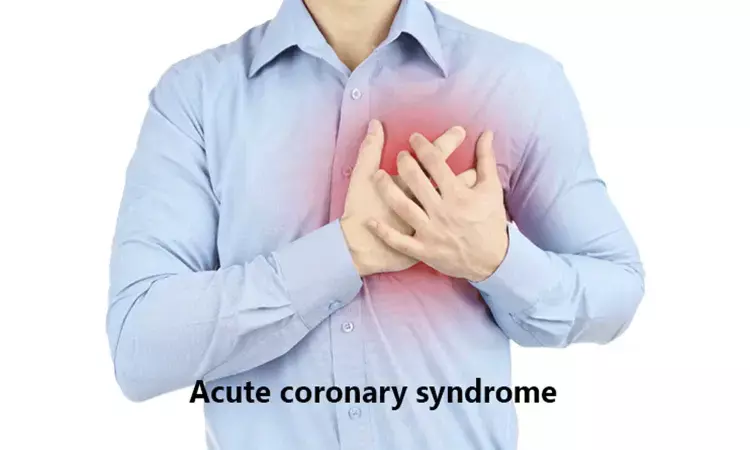- Home
- Medical news & Guidelines
- Anesthesiology
- Cardiology and CTVS
- Critical Care
- Dentistry
- Dermatology
- Diabetes and Endocrinology
- ENT
- Gastroenterology
- Medicine
- Nephrology
- Neurology
- Obstretics-Gynaecology
- Oncology
- Ophthalmology
- Orthopaedics
- Pediatrics-Neonatology
- Psychiatry
- Pulmonology
- Radiology
- Surgery
- Urology
- Laboratory Medicine
- Diet
- Nursing
- Paramedical
- Physiotherapy
- Health news
- Fact Check
- Bone Health Fact Check
- Brain Health Fact Check
- Cancer Related Fact Check
- Child Care Fact Check
- Dental and oral health fact check
- Diabetes and metabolic health fact check
- Diet and Nutrition Fact Check
- Eye and ENT Care Fact Check
- Fitness fact check
- Gut health fact check
- Heart health fact check
- Kidney health fact check
- Medical education fact check
- Men's health fact check
- Respiratory fact check
- Skin and hair care fact check
- Vaccine and Immunization fact check
- Women's health fact check
- AYUSH
- State News
- Andaman and Nicobar Islands
- Andhra Pradesh
- Arunachal Pradesh
- Assam
- Bihar
- Chandigarh
- Chattisgarh
- Dadra and Nagar Haveli
- Daman and Diu
- Delhi
- Goa
- Gujarat
- Haryana
- Himachal Pradesh
- Jammu & Kashmir
- Jharkhand
- Karnataka
- Kerala
- Ladakh
- Lakshadweep
- Madhya Pradesh
- Maharashtra
- Manipur
- Meghalaya
- Mizoram
- Nagaland
- Odisha
- Puducherry
- Punjab
- Rajasthan
- Sikkim
- Tamil Nadu
- Telangana
- Tripura
- Uttar Pradesh
- Uttrakhand
- West Bengal
- Medical Education
- Industry
AHA issues new scientific statement on managing acute coronary syndrome in elderly

USA: The American Heart Association (AHA) has released a new scientific statement for managing acute coronary syndrome (ACS) in the older adult population. It is an update to the 2007 AHA statement on ACS treatment in the elderly.
According to the AHA's scientific statement, published in Circulation, age-related changes in general and cardiovascular health likely require modifications in how acute coronary syndrome is diagnosed and managed in adults aged 75 and older. The statement outlines a framework to integrate geriatric risks into ACS management, including pharmacotherapy, diagnostic approach, prevention of adverse events, transition care planning, and revascularization strategies.
Adults aged 75 and older make up roughly 30%-40% of all hospitalized patients with ACS. The majority of ACS-related deaths occur in this group, Abdulla A. Damluji, director of the Inova Center of Outcomes Research in Fairfax, Virginia, and colleagues noted.
"Older patients have pronounced anatomical changes and more severe functional impairment, and they are more likely to have additional health conditions," Dr Damluji and colleagues wrote in a news release. "These include frailty, physical dysfunction, other chronic disorders, urinary incontinence, cognitive decline -- and these are not studied regularly with regards to ACS.
The clinical presentation, prognosis, clinical course, response to treatment, and therapeutic decision-making of the ACS may be substantially affected by the presence of one or more geriatric syndromes. "It is therefore fundamental that clinicians caring for older patients with ACS be alert to the presence of geriatric syndromes and be able to integrate them into the care plan when appropriate," the writing group says.
They recommend an individualized, holistic, and patient-centred approach to ACS care in the elderly, considering coexisting and overlapping health issues.
Some of the recommendations for ACS diagnosis and management in elderly adults include:
- ACS presentations without chest pain, such as shortness of breath, syncope, or sudden confusion, are more common in older adults.
- Age-related changes in metabolism, weight and muscle mass may require different choices in anticoagulant medications to lower bleeding risk.
- Many older adults have persistent elevations in cardiac troponin levels due to myocardial fibrosis and kidney disease that diminish the positive predictive value of high-sensitivity cardiac troponin (hs-cTn) assays for identifying the acute and chronic myocardial injury. For this reason, evaluating patterns of rise and fall is essential.
- Poor kidney function can increase the risk of contrast-induced acute kidney injury.
- Clopidogrel (Plavix) is the preferred P2Y12 inhibitor due to a significantly lower bleeding profile than ticagrelor (Brilinta) or prasugrel (Effient). For patients with ST-segment myocardial infection (STEMI) or complex anatomy, the use of ticagrelor is "reasonable."
- Determine a priori goals of care in older patients to help avoid an unwanted or futile intervention.
- Patient care plans should be individualized, with input from a multidisciplinary team that may include cardiologists, surgeons, geriatricians, primary care clinicians, nutritionists, social workers, and family members.
- For patients with cognitive difficulties and limited mobility, consider simplified medication plans with fewer doses per day and 90-day supplies to prevent the need for frequent refills.
- Post-MI care should include cardiac rehabilitation tailored to address each patient's circumstances and personal goals of care.
- Although the risks are greater, percutaneous coronary intervention or bypass surgery is beneficial in select older adults with ACS.
Reference:
Abdulla A. Damluji, Daniel E. Forman, Tracy Y. Wang, Joanna Chikwe, Vijay Kunadian, Michael W. Rich, Bessie A. Young, Robert L. Page II, Holli A. DeVon, Karen P. Alexander Originally published12 Dec 2022https://doi.org/10.1161/CIR.0000000000001112Circulation. 2022;0
Dr Kamal Kant Kohli-MBBS, DTCD- a chest specialist with more than 30 years of practice and a flair for writing clinical articles, Dr Kamal Kant Kohli joined Medical Dialogues as a Chief Editor of Medical News. Besides writing articles, as an editor, he proofreads and verifies all the medical content published on Medical Dialogues including those coming from journals, studies,medical conferences,guidelines etc. Email: drkohli@medicaldialogues.in. Contact no. 011-43720751


